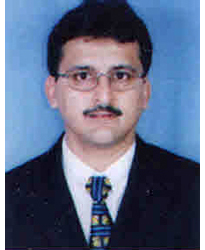|
Service tax on forward charge mechanism, announced in today's Budget, comes as a huge relief to thousands of small IFAs. How exactly will this work and what are next steps for IFAs? I turned for guidance to Yasir Varawala of Abacus Corporation Pvt Ltd, Mumbai - a leading IFA, a qualified Chartered Accountant, one of the founders of FIFA, and the go-to man within FIFA for all legal and tax matters.

Here's what Yasir shared with me:
IFAs will now start getting their full commission from AMCs from April 2016, and will be responsible for paying service tax and filing service tax returns on a periodic basis.
Once your income that is liable to service tax in FY 16-17 crosses Rs. 9 lakhs (this will not be just MF commissions, but will include all other incomes that are liable to service tax - like any consultancy fees, real estate brokerage etc), you will need to register yourself with the service tax authorities.
Once you have registered, you will not have to pay service tax on the next 1 lakh of commission income (ie upto 10 lakhs) - which means commissions upto Rs. 10 lakhs in the first year will effectively be exempt from service tax. Any commissions above this will be liable to service tax.
In the next year, you will have to start paying service tax on all commission income right from the 1st month, and will continue to do so even if total commission income in this year falls below the 10 lakh limit.
In year 3, due to the fact that your year 2 commission fell below the 10 lakh threshold, your 10 lakh meter starts all over again - ie, you don't pay service tax until you hit the 10 lakh commission income threshold. In essence, payment of service tax is a function of whether you crossed the threshold in the previous year.
You will be able to obtain Cenvat credit on service tax charged to you - for example service tax on your telephone bills.
The effective service tax rate now works out to around 15.1% after the hike in surcharge.
It is a matter of great satisfaction for FIFA and the United Forum, which represented strongly for the introduction of this forward charge mechanism and thus provide relief to thousands of small IFAs.
Multiple ARNs to stay within the 10 lakh limit?
For IFAs whose commission income is well below the 10 lakh limit, this is welcome relief indeed. For the whole of this financial year, they understandably felt deeply aggrieved as they were denied the relief otherwise given to all other service providers, merely because it was felt that the reverse charge mechanism will be more administratively convenient to the tax authorities.
For the handful of IFAs whose income is many multiples higher than 10 lakhs, nothing much changes. They continue to bear the service tax, except that their administrative responsibilities increase towards paying the tax and filing regular returns.
Then we have a large and growing segment of IFAs whose commission income is in the 10 -30 lakh bracket. Today, their net income has reduced by 14.5% due to service tax incidence and next year, it will reduce by 15.1%. Are we likely to see this segment creating multiple ARNs within the family, to ensure that each ARN remains within the 10 lakh threshold and thus save a hefty 15% of income? "Tax planning" for most businessmen meant finding ingenious ways to reduce income tax incidence. Are we now likely to see "service tax planning" as an added element of "tax planning" among MF distributors?
Share this article
|